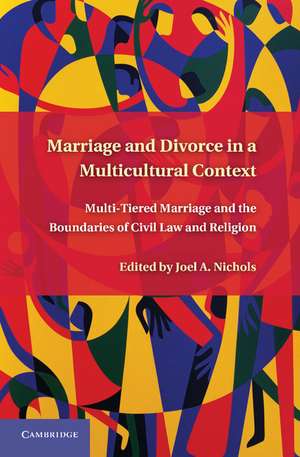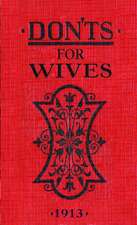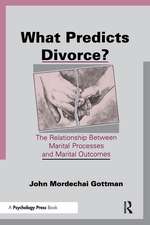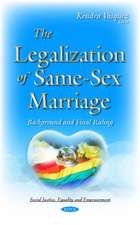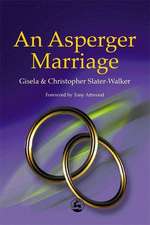Marriage and Divorce in a Multi-Cultural Context: Multi-Tiered Marriage and the Boundaries of Civil Law and Religion
Editat de Joel A. Nicholsen Limba Engleză Paperback – 10 iul 2013
| Toate formatele și edițiile | Preț | Express |
|---|---|---|
| Paperback (1) | 323.65 lei 6-8 săpt. | |
| Cambridge University Press – 10 iul 2013 | 323.65 lei 6-8 săpt. | |
| Hardback (1) | 511.22 lei 6-8 săpt. | |
| Cambridge University Press – 30 oct 2011 | 511.22 lei 6-8 săpt. |
Preț: 323.65 lei
Nou
Puncte Express: 485
Preț estimativ în valută:
61.93€ • 66.23$ • 51.64£
61.93€ • 66.23$ • 51.64£
Carte tipărită la comandă
Livrare economică 17 aprilie-01 mai
Preluare comenzi: 021 569.72.76
Specificații
ISBN-13: 9781107614369
ISBN-10: 1107614368
Pagini: 418
Ilustrații: 1 b/w illus.
Dimensiuni: 152 x 229 x 22 mm
Greutate: 0.56 kg
Editura: Cambridge University Press
Colecția Cambridge University Press
Locul publicării:New York, United States
ISBN-10: 1107614368
Pagini: 418
Ilustrații: 1 b/w illus.
Dimensiuni: 152 x 229 x 22 mm
Greutate: 0.56 kg
Editura: Cambridge University Press
Colecția Cambridge University Press
Locul publicării:New York, United States
Cuprins
1. Multi-tiered marriage: reconsidering the boundaries of civil law and religion Joel A. Nichols; 2. Pluralism and decentralization in marriage regulation Brian H. Bix; 3. Marriage and the law: time for a divorce? Stephen B. Presser; 4. Unofficial family law Ann Laquer Estin; 5. Covenant marriage laws: a model for compromise Katherine Shaw Spaht; 6. New York's regulation of Jewish marriage: covenant, contract, or statute? Michael J. Broyde; 7. Political liberalism, Islamic family law, and family law pluralism Mohammad H. Fadel; 8. Multi-tiered marriages in South Africa Johan D. van der Vyver; 9. Ancient and modern boundary crossings between personal laws and civil law in composite India Werner Menski; 10. The perils of privatized marriage Robin Fretwell Wilson; 11. Canadian conjugal mosaic: from multiculturalism to multi-conjugalism? Daniel Cere; 12. Marriage pluralism in the United States: on civil and religious jurisdiction and the demands of equal citizenship Linda C. McClain; 13. Faith in law? Diffusing tensions between diversity and equality Ayelet Shachar; 14. The frontiers of marital pluralism: an afterword John Witte, Jr and Joel A. Nichols.
Recenzii
'It presents a scholarly discussion of the pros and cons of multi-tiered marriage with essays covering historical, legal, and religious dimensions of the issue. Nichols, and to some lesser extent his mentor John Witte, Jr, are advocates of hybrid legal approaches to marriage.' John Farina, Journal for the Study of Marriage and Spirituality
'Balance and addressing both sides of the argument is a feature of the volume on the whole. Reading the chapters in succession, it is striking how often one's own questions or doubts about a particular perspective are picked up and addressed by a subsequent chapter. An even handed and measured tone strengthens the force of the individual arguments and contributes to the overall effectiveness of this important and stimulating conversation, where the participants are not only making their own views heard but also listening and seeking to respond to those of others.' The Cambridge Law Journal
'Balance and addressing both sides of the argument is a feature of the volume on the whole. Reading the chapters in succession, it is striking how often one's own questions or doubts about a particular perspective are picked up and addressed by a subsequent chapter. An even handed and measured tone strengthens the force of the individual arguments and contributes to the overall effectiveness of this important and stimulating conversation, where the participants are not only making their own views heard but also listening and seeking to respond to those of others.' The Cambridge Law Journal
Descriere
This book examines whether more pluralism in family law is normatively desirable and should be affirmatively fostered.
